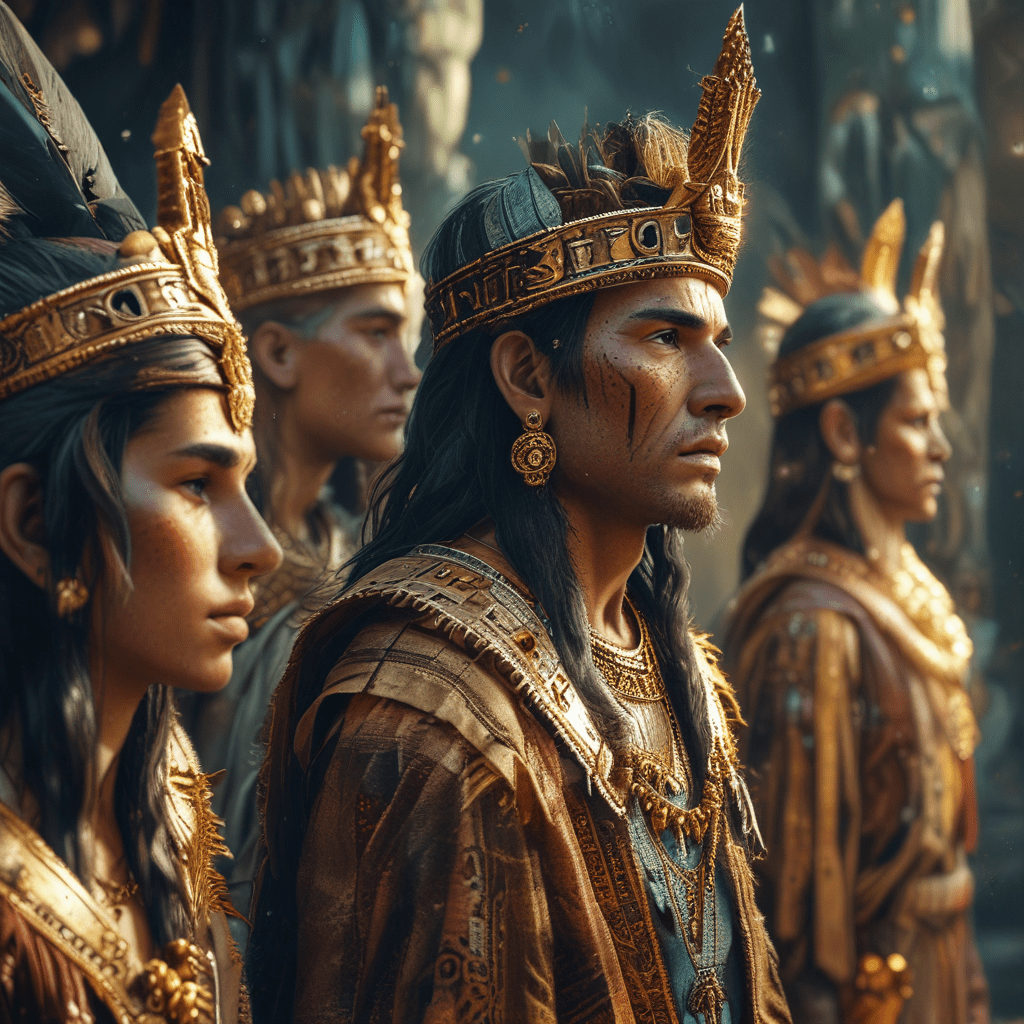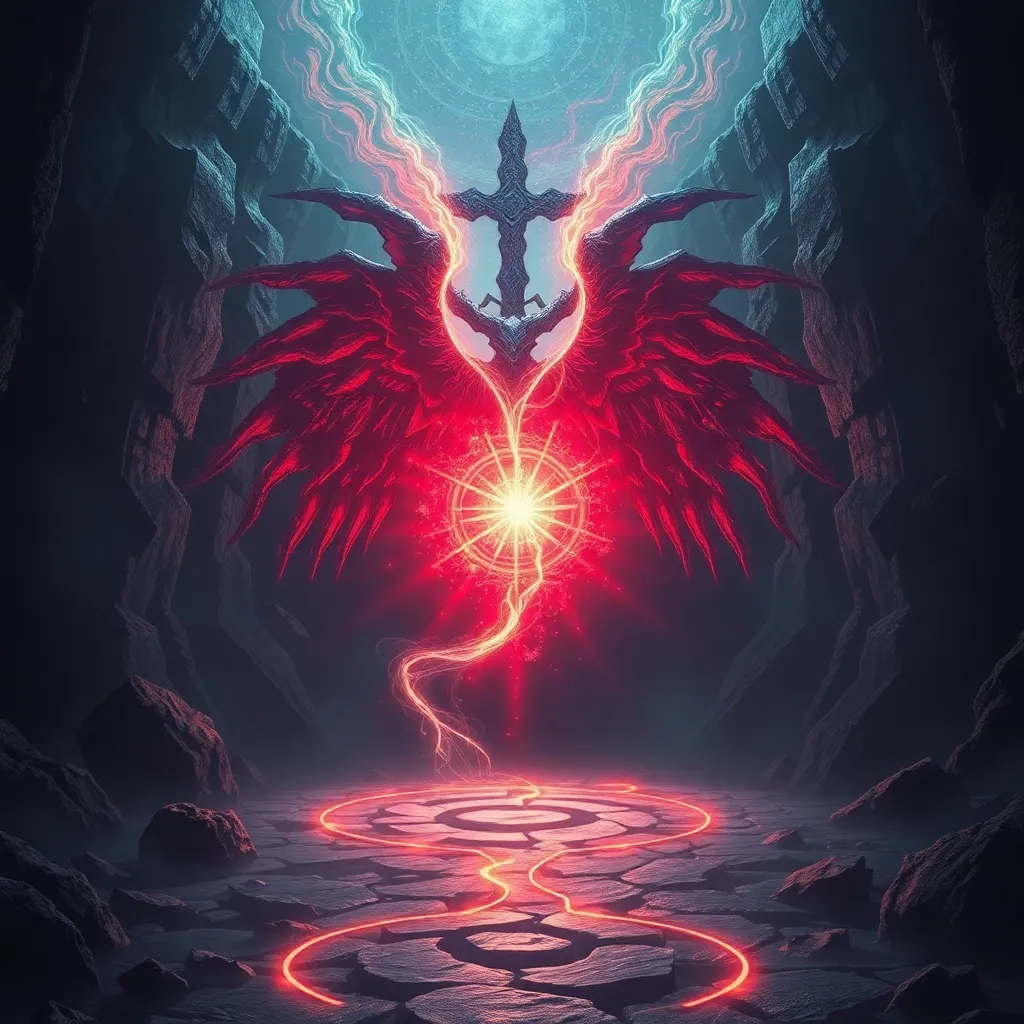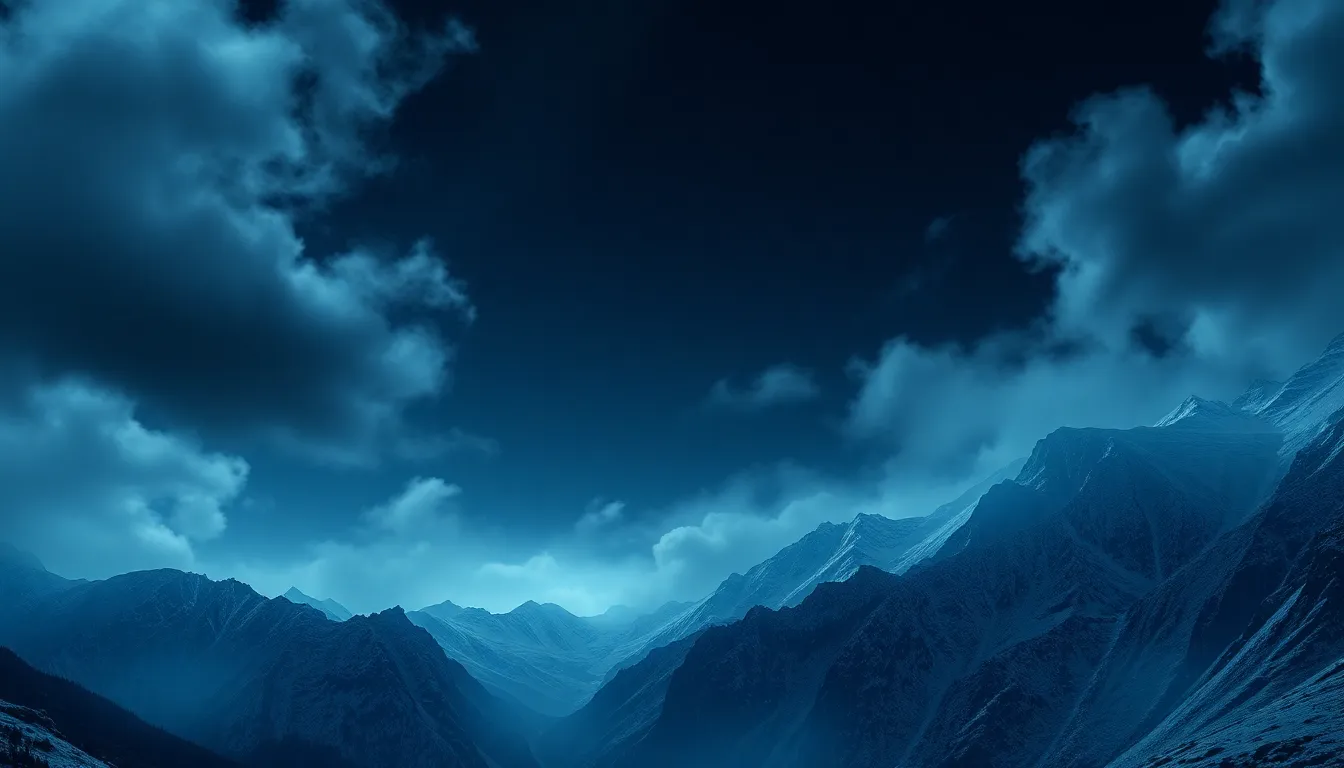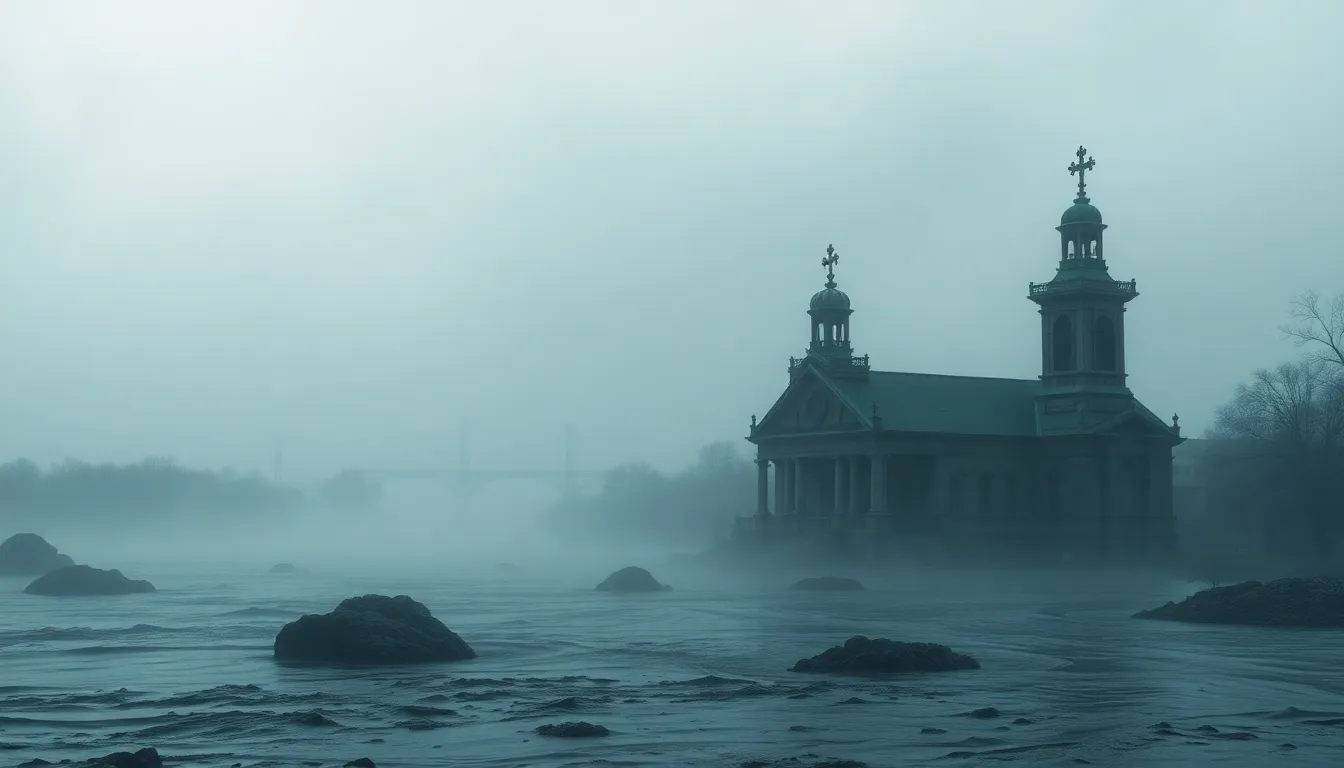Incan Mythology: A Divine Mandate for Kingship
In the heart of the Andes Mountains, the Inca Empire flourished for centuries, leaving behind a rich tapestry of myths and legends. Among these, the concept of divine kingship stands out, weaving together beliefs about the origins of the world, the power of the sun god Inti, and the special role of the Inca Emperor. This belief system shaped the Inca society, dictating everything from leadership selection to everyday practices.
The Incan Creation Myth: The Foundation of Divine Kingship
The Inca creation myth, known as the "Legend of the Viracochas," provides the foundation for the divine mandate of kingship. According to this myth, the world was created by Viracocha, a powerful creator god, who emerged from Lake Titicaca, a sacred lake in the Andes. Viracocha created the sun, moon, and stars, as well as the first humans.
He then traveled across the land, teaching people how to live, cultivate crops, and build cities. The Inca believed that after completing his creation, Viracocha departed from the world, leaving behind a divine order that humans were obligated to maintain.
The Sun God Inti: The Ultimate Source of Power and Authority
The Sun God Inti, worshipped as the supreme deity, played a crucial role in the Incan belief system. Inti was seen as the ultimate source of life, warmth, and fertility. The Inca believed that Inti bestowed his power and authority on the Inca Emperor, who represented him on Earth.
The Inca Emperor was considered Inti's earthly representative, chosen by the gods to rule and maintain order in the world. This divine connection gave the Inca Emperor immense power and prestige within the empire.
The Role of the Inca Emperor: A Divine Representative on Earth
The Inca Emperor, or Sapa Inca, was more than just a political leader; he was a spiritual figure, a living embodiment of the gods. He held a special place in Inca society, considered a bridge between the divine realm and the human world.
As Inti's representative, the Inca Emperor was responsible for ensuring the well-being of his people and maintaining cosmic order. This meant overseeing agriculture, warfare, and religious rituals, all of which were believed to be directly connected to the divine realm.
The Selection of the Emperor: Divine Intervention and Rituals
The selection of the Inca Emperor was a highly ritualized process, infused with divine symbolism. The Inca believed that the successor to the throne was chosen by Inti himself, through a series of signs and omens.
The process often involved complex divination rituals, where priests would consult with the gods and seek guidance through the interpretation of dreams, animal behavior, or celestial events. The chosen successor was believed to be a direct descendant of the previous emperor, ensuring a continuation of the divine bloodline.
The Royal Lineage: Bloodlines as a Manifestation of Divine Favor
The Inca believed that the royal lineage, the descendants of the first Inca emperor, held a special connection to the divine. The blood flowing through their veins was seen as a manifestation of Inti's favor, passed down through generations. This belief reinforced the emperor's divine authority and ensured that the royal family held a position of power and prestige in Inca society.
As the emperor was seen as the embodiment of the gods, his bloodline was considered sacred, and his descendants were believed to inherit a portion of his divine power. This made them uniquely qualified to rule and maintain the cosmic order. They were not just human rulers, but custodians of divine power, responsible for the well-being of the empire.
The Emperor’s Divine Responsibilities: Maintaining Cosmic Order and Prosperity
The Inca Emperor's responsibilities were not merely political; they were deeply intertwined with the spiritual realm. He was seen as the guardian of the cosmic order, responsible for ensuring the harmony of the universe and the prosperity of his people.
This divine mandate required the emperor to perform a wide range of duties, including:
- Ensuring agricultural abundance: The emperor oversaw the intricate system of irrigation and agricultural practices that sustained the Inca Empire, a responsibility directly linked to the fertility of the land and the favor of the gods.
- Guiding military campaigns: The emperor led the Inca armies in times of war, believing that his divine authority gave him the power to conquer and expand the empire.
- Maintaining religious practices: The emperor was responsible for overseeing the elaborate rituals and ceremonies that honored the gods, ensuring their continued favor and the well-being of the empire.
- Preserving cultural traditions: The emperor was the custodian of Inca traditions and customs, acting as a symbol of cultural continuity and the enduring power of their beliefs.
The Emperor’s Sacral Authority: The Power of Ritual and Ceremony
The Inca Emperor's divine authority was constantly reinforced through rituals and ceremonies. These elaborate performances were not mere symbolic gestures; they were believed to have real power, capable of influencing the gods and shaping the course of events.
- The Inti Raymi festival: This grand festival, held in honor of the Sun God Inti, was a time of great celebration and sacrifice. The emperor, as Inti's earthly representative, played a central role in the festival, offering sacrifices and demonstrating his connection to the divine.
- The Inca's daily rituals: Even the emperor's daily routines were infused with ritual significance. His daily meals, dress, and interactions with his subjects were carefully calculated to maintain his sacred status and reinforce his connection to the divine.
Through these rituals, the Inca Emperor was able to maintain his authority and legitimize his rule, ensuring the smooth functioning of the empire and the continued favor of the gods.
Ancient Accounts and Theories: Interpreting the Divine Kingship
The concept of divine kingship as practiced by the Inca has been a subject of intense study by archaeologists, historians, and anthropologists. Ancient accounts from Spanish chroniclers, who arrived in the Andes after the conquest, provide valuable insights into Inca beliefs and practices. However, these accounts are often filtered through the lens of European perspectives and may not fully capture the nuances of Inca thought.
Scholars have proposed different interpretations of the Inca belief system, attempting to understand the specific role of the emperor in Inca society and the relationship between the divine and the human realm. Some theories suggest that the concept of divine kingship was intended to provide political stability and legitimize Inca rule, while others see it as a reflection of a complex worldview that integrated spiritual and material aspects of life.
Modern Perspectives: Deconstructing the Myth and Understanding the Reality
In modern times, scholars continue to explore the concept of divine kingship in the Inca Empire, seeking to disentangle the myth from reality. While the Inca undeniably believed in the divine nature of their emperors, modern perspectives also consider the practical and social aspects of their belief system.
It's important to acknowledge that the concept of divine kingship, while deeply embedded in Inca culture, was not simply a matter of blind faith. It was a complex system of beliefs and practices that served to maintain social order, legitimize power, and provide a framework for understanding the world.
By understanding the complexities of the Inca belief system, we can gain a deeper appreciation for the richness and diversity of human thought, and the enduring power of myth and legend.
FAQ
Q: Were all Inca leaders chosen by the gods?
A: While the Inca believed that their emperors were chosen by Inti, not all leaders within the empire necessarily held divine status. The Inca system of governance included a complex hierarchy, with various levels of authority.
Q: What happened to the concept of divine kingship after the Spanish conquest?
A: The Spanish conquest of the Inca Empire marked a dramatic shift in power dynamics. The Spanish imposed their own system of governance, which undermined the traditional belief in divine kingship. The Inca emperors were replaced with Spanish viceroys, and the Inca religion was actively suppressed.
Q: How did the Inca emperor's divine authority influence his actions?
A: The belief that the Inca emperor was a divine representative influenced his actions in a variety of ways. It gave him immense power and authority, allowing him to make decisions that impacted the lives of millions. It also shaped his behavior, dictating how he interacted with his subjects and the gods.
Q: Why is it important to study the Inca concept of divine kingship?
A: Studying the Inca concept of divine kingship provides valuable insights into the complexities of human beliefs and the role of religion in shaping societies. It also allows us to appreciate the richness and diversity of human cultures and understand the evolution of political power throughout history.



